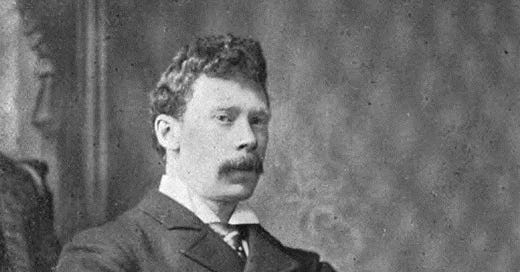The writer and academic, Arthur Quiller-Couch is famous for coining this phrase.
When he became Professor of English Literature at the University of Cambridge, he said this in one of his lectures:
‘If you here require a practical rule of me, I will present you with this: 'Whenever you feel an impulse to perpetrate a piece of exceptionally fine writing, obey it—whole-heartedly—and delete it before sending your manuscript to press. Murder your darlings.’
By this he means that you should delete any piece of writing you are inordinately pleased with.
The speech was given on January 28 1914. Sadly, in a mere seven months too many darlings, men, women and children, would be slaughtered in the First World War.
His advice is sound and one I have been following recently. I’m editing my current book, The War on Wessex which is the final novel in my Viking Chronicles trilogy.
This has been the most difficult book I’ve had to edit since A Love Most Dangerous where a skilled editor taught me the subtle torments of the process.
The reason is that although I say I’m working on my first draft, it’s actually not. I started the book in September 2019, gave it up in November of that year, started again in March 2022 and ditched that draft as well. I’ve written seven books since starting the novel. It’s caused me so much head-scratching that now, as I murder my darlings, I’m doing so with glee.
Except in one case. What do I do about Leoflaed?
I’ve always been a reluctant killer of characters I’ve grown to like. I tried to drown the garrulous Hog in my The Lost King books but he was rescued by his friends. I even pulled back the knife when I was about to kill the truculent Bork in the same series. Villains, I murder without a qualm. But nice people? It’s not easy for me.
Leoflaed is a beautiful and clever woman who wins the heart of Alfred the Great’s war leader, Edgwulf. I’d be more than happy to let them live happily ever after. They deserve it.
But here’s the dilemma. Although The War on Wessex is the third novel of the Viking trilogy, I have already published two books which deal with the years following it. And guess what? Edgwulf is a central character in these books but there is no mention of Leoflaed. She is a non-person. She does not exist. When I wrote them, I had not conjured her up.
Now, unless Edgwulf, Alfred and all their friends have terrible memories and a callous disregard for the missing woman, I’ve got a problem. So, it’s clear that I have to somehow ease her out of the story at the end of this book.
I’ve got various scenarios.
She is killed by the Vikings in the final attack upon a town. She dies of natural causes. (My unconscious may have been hinting at this because I’ve just discovered she’s pregnant.) She is captured by the Vikings and becomes an unwilling wife of one of their kings. Or maybe a slave. She is trampled to death, possibly by Alfred, when the Saxons flee the town. Her husband Edgwulf abandons her to some grisly fate in order to save the king.
So, which will it be?
Unless, of course, she says, ‘Damn you Martin Lake, I’m fed up being messed about like this. I’m going down the pub.’
So what will her fate be? Any suggestions very welcome.






I think you should keep her. Everyone likes a bit of romance and it will add tension. How will Edgwulf react should anything happen to her??? You could explain away her new arrival by saying Edgwulf has been keeping her a secret for her safety.
I think following your subconscious and having her die during childbirth (off-page) might be an interesting option. Sadly, it would have been the fate of many women at that time and gives you the added torment of Edgwulf losing both her and his child - all the emotions!